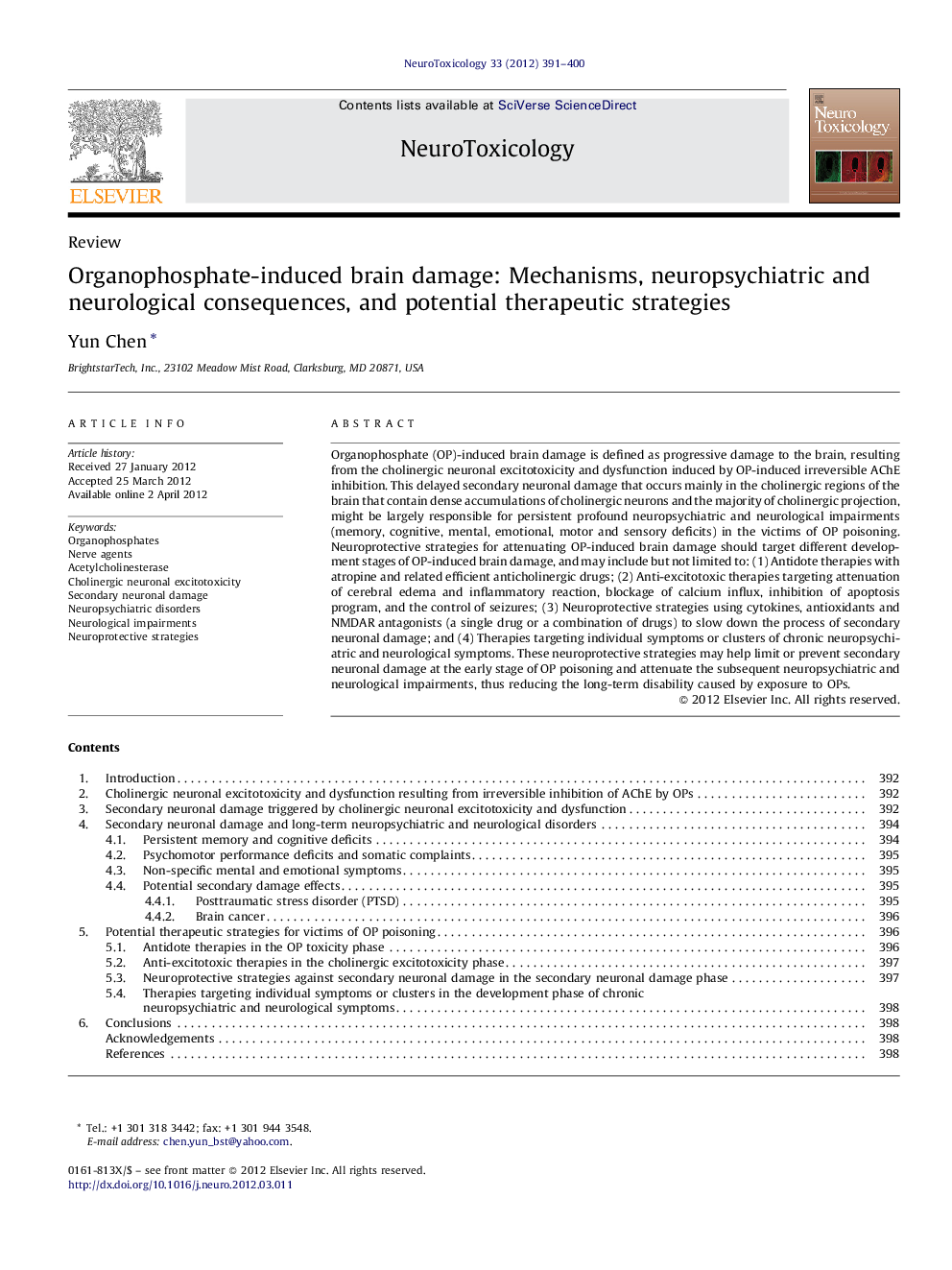| Article ID | Journal | Published Year | Pages | File Type |
|---|---|---|---|---|
| 5855318 | NeuroToxicology | 2012 | 10 Pages |
Abstract
Organophosphate (OP)-induced brain damage is defined as progressive damage to the brain, resulting from the cholinergic neuronal excitotoxicity and dysfunction induced by OP-induced irreversible AChE inhibition. This delayed secondary neuronal damage that occurs mainly in the cholinergic regions of the brain that contain dense accumulations of cholinergic neurons and the majority of cholinergic projection, might be largely responsible for persistent profound neuropsychiatric and neurological impairments (memory, cognitive, mental, emotional, motor and sensory deficits) in the victims of OP poisoning. Neuroprotective strategies for attenuating OP-induced brain damage should target different development stages of OP-induced brain damage, and may include but not limited to: (1) Antidote therapies with atropine and related efficient anticholinergic drugs; (2) Anti-excitotoxic therapies targeting attenuation of cerebral edema and inflammatory reaction, blockage of calcium influx, inhibition of apoptosis program, and the control of seizures; (3) Neuroprotective strategies using cytokines, antioxidants and NMDAR antagonists (a single drug or a combination of drugs) to slow down the process of secondary neuronal damage; and (4) Therapies targeting individual symptoms or clusters of chronic neuropsychiatric and neurological symptoms. These neuroprotective strategies may help limit or prevent secondary neuronal damage at the early stage of OP poisoning and attenuate the subsequent neuropsychiatric and neurological impairments, thus reducing the long-term disability caused by exposure to OPs.
Related Topics
Life Sciences
Environmental Science
Health, Toxicology and Mutagenesis
Authors
Yun Chen,
